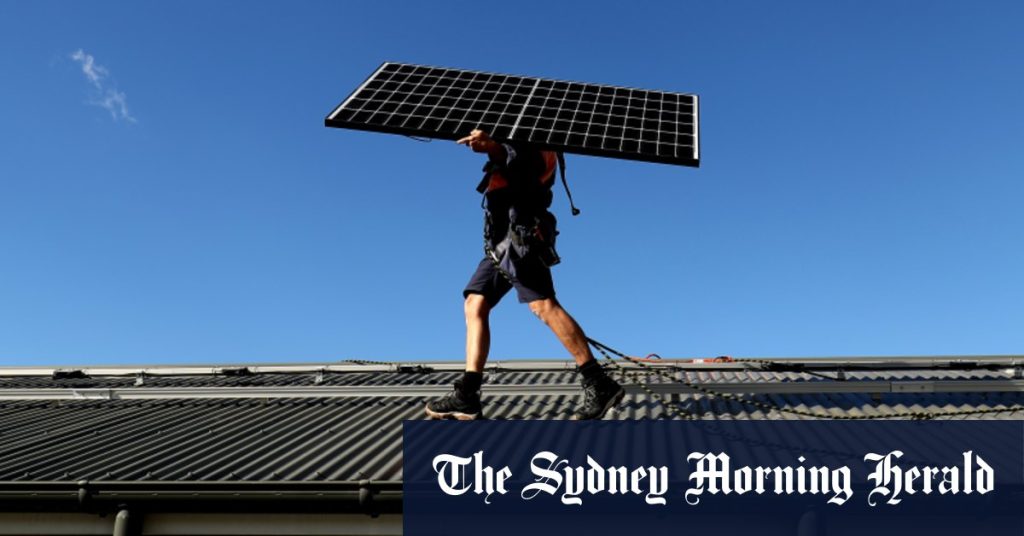The issue of early retirement of solar panels in Australia is becoming a pressing concern, as many owners are choosing to replace their panels after just a few years instead of the expected 25-year lifespan. This trend is leading to a potential crisis in the industry, as newer, more efficient panels are continually being introduced to the market. While the technical lifetime of a solar panel may be 25 to 30 years, the practical lifespan is often only 10 to 15 years in Australia due to early replacements.
The cost of recycling solar panels ranges from $500 to $1000 per tonne, and while the economics may be challenging at present, there is hope that advancements in technology will improve the process and make recycling more economically feasible in the future. Victoria and South Australia have banned solar panels from going to landfill, but there are limited recycling facilities available. However, specialists have been able to achieve up to 90% material recovery from recycled panels, and some facilities, such as Lotus Energy in Melbourne, claim to be able to reuse 100% of the recovered materials.
In response to the growing issue of solar waste, the Victorian government announced a $10 million “solar waste challenge” in September 2022, aimed at investing in innovative solutions to reduce the amount of solar panels ending up as waste. Despite the emergence of this problem, there are still limited options for recycling solar panels in Victoria, prompting calls for more investment in research and technology to address the issue. Some solar panels are being stored in sheds while agencies seek solutions, highlighting the need for more efficient and widespread recycling efforts.
The potential for recycling solar panels is significant, and there is a growing recognition of the need to address the issue of end-of-life panels to avoid dumping them in landfills. The Victorian government is working with the Commonwealth to establish a national stewardship program that would work with industry to improve the recovery and reuse of solar panels. Deakin University’s Institute for Frontier Materials received a grant to extract silicon from old panels and convert it into a valuable “nano material” as one example of innovative solutions being pursued in this area.
State opposition energy spokesman David Davis has highlighted the urgency of dealing with solar waste, emphasizing the need to avoid dumping panels in landfills. While there are challenges to overcome in establishing efficient recycling processes, the industry is working towards finding viable solutions to handle the increasing number of end-of-life solar panels. As the market for solar panels continues to grow, there is a need for ongoing research and investment in technology to ensure that recycling efforts are effective in managing the waste generated by the industry.


